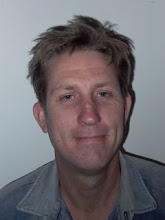There are two theories of thought on societal change; Does it happen gradually (evolution) or suddenly (revolution?) Maybe it happens both ways. As someone who has been working in the elearning (a dangerous misnomer if ever there was one) space since the last century I've seen and experienced the tremendous advances made in technology. What was true only last year has now changed, as the network effect takes hold and access barriers are removed. So you can almost see the cracks widening day-by-day in the dam of resistance. So the evolution slowly builds up and the boundaries blur as early adopters lay down the paths that open up areas for exploration. Then the goldrush commences.
The danger is that we use the lenses of previous paradigms to examine the new order, rather than exploring the possibilities in the new concept. We apply our rigid pattern of thinking over the new model; elearning becomes a way of distributing information that is build on the old correspondence model of self-learning, rather than utilising the synchronous affordances of the technologies of the read-write web.
This challenges the status quo of the Teaching profession. To do this effectively the sage on the stage must move through being a guide on the side (reference) to becoming a learning partner, a personal coach that helps develop their human capital to its maximum potential. More on developing Social Capital soon.
I really think this has to change our thinking from pedagogy to andragogy and make all learning active learning. I find my three year old has much more capacity for self-directed learning than we traditionally give small children credit for. However, we don't want to lose all the knowledge that has been built up by our teaching professionals in this paradigm shift, and my question is how to be sort through and determine the good from the bad? Everything old is new again, how to apply this in the new context?




No comments:
Post a Comment